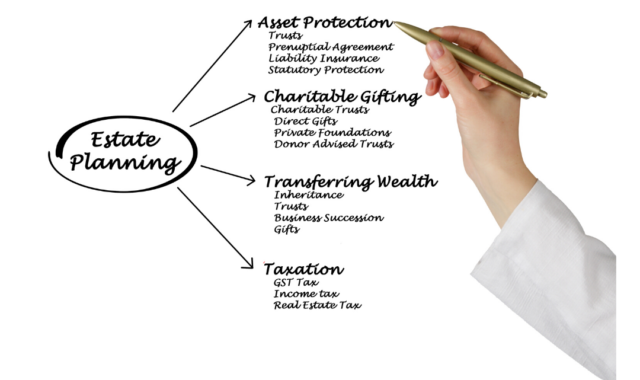It’s an honor to be named an executor since it means that your loved one had a lot of trust and confidence in you. An estate executor is an important role to fill, and it’s a lot of responsibility. If a loved one has named you an executor, this Executor Duties Checklist will help you to understand your role and to prioritize your responsibilities. (Note that this checklist is a general overview. There are many resources available on this topic, and you should always check with an estate planning attorney in your state for clarification of exactly what is required of an executor where you live.)
Role of Executor in Estate Administration
An executor is a person who is selected to carry out someone’s estate plans after death. This person is responsible for making sure debts and creditors are paid and that remaining money or property is distributed to beneficiaries in accordance with the terms of the will.
Download our free tip sheet on the mistakes to avoid when designating beneficiaries.
There’s also a lot of time and effort required for this role since it can take up to a year to settle an estate. It’s wise to consider your personal investment before you accept it — you are not legally obligated to accept the role of executor if your life circumstances don’t allow. For this reason, it’s important to know what you’re committing to if you decide to accept.
Executor Duties Checklist
An executor has a lot of responsibility when settling an estate. This handy executor checklist will help you to remember everything you’ll be responsible for, and will help you to prioritize your efforts.
Step 1: Find the Will and Estate Planning Documents
▢ Review all estate planning documents.
▢ Determine if probate is necessary and file the will with the probate court if required.
▢ Decide if you need an estate attorney, and engage one if needed.
Step 2: Handle Arrangements for the Deceased
▢ Review the wishes of the deceased for the funeral and handling of the remains.
▢ Make preparations for the funeral and the remains accordingly.
▢ Obtain a death certificate from the funeral home or the state vital records office.
▢ Provide assistance to the family as needed.
▢ Arrange guardianship for minor children and pets as needed.
Step 3: Locate and Manage Assets
▢ Gather all important documentation including property deed(s), car title(s), insurance policies, investments, and contracts.
▢ Take control of, freeze, and secure all assets including bank accounts(s), security deposit box(es), credit card(s), and other financial accounts.
▢ Keep assets safe until appropriate parties receive them.
▢ Arrange for jointly-owned assets to transfer to the surviving owner.
Step 4: Notify of Decedent’s Death
▢ Notify all beneficiaries named in the will of their interest.
▢ Disclose the death to employer, banks, credit card companies, investment brokers and insurance agents, utility providers, government agencies, the post office, and any others that were affiliated with the deceased.
▢ Notify all creditors and request that they file a claim against the state.
▢ Forward mail or redirect if appropriate.
Step 5: Manage Estate Financials
▢ Locate all debts and open estate accounts to pay them, including mortgage, insurance premiums, utility bills, etc.
▢ Terminate leases and any outstanding contracts.
▢ Find all ongoing payments and stop them and cancel all credit cards.
▢ Claim due benefits like life insurance and Social Security, as well as any money owed to the deceased.
▢ Pay taxes and fees including income tax, estate tax, inheritance tax, attorney fees, etc.
▢ Review and approve of all creditor’s claims against the estate.
▢ Claim executor fee and expenses.
▢ Review all investments.
▢ Arrange for spousal and child support as appropriate.
▢ Sell assets in accordance with the terms of the will.
Step 6: Supervise the Distribution of Property and Close Estate
▢ Provide assets to beneficiaries or charities in accordance with the will.
▢ Maintain and finalize all records include disbursements and estate receipts.
▢ Share the final report of estate financials with the beneficiaries.
▢ Close estate bank accounts once all payments have cleared.
Estate Administration Tips
Here are some helpful tips to keep in mind as you undertake your role as executor of an estate:
- Any money you pay for your expenses to manage the estate, or to an attorney or accountant to initiate probate may be compensated by the estate. Make sure to track those expenses and keep receipts.
- Debts of the estate must be paid before gifts may be disbursed to beneficiaries.
- Even if probate isn’t required, the will usually must be filed with the probate court.
- If probate is required, you need to file a petition with the court to be appointed executor of the estate.
Questions to Ask After You Accept the Role of Executor
If you have the opportunity to discuss your role with the person naming you as their executor, asking a few questions will help ensure you’re able to fulfill their wishes in an efficient manner.
- Where are the will and other important documents like property deeds, insurance policies, investment accounts, etc?
- Who are your other representatives (for a living will, power of attorney, etc.)?
- Are there co-executors?
- Have you made funeral arrangements, and if not, what are your preferences?
- Do you have an estate lawyer or an accountant you want to assist with your estate?
- Are there any special instructions I should know about?
Knowing the answers to these questions ahead of time will help you to be prepared when the time comes and to understand the complexities of the role you’ll play.
The role of executor for an estate can be a significant job with a lot of responsibility, but it’s an incredible honor to fulfill the role of managing the estate administration for a deceased loved one. If possible, it’s best for you and your loved one to meet with an estate planning attorney who can help ensure that everything is in order and that you are set up for success when the time comes to serve.
Thingealogy® is a free story-telling app with beneficiary-assigning features for your tangible personal property. Check with your attorney as you may be able to include this checklist in your estate planning documents. Download the app, and try it out for yourself!

